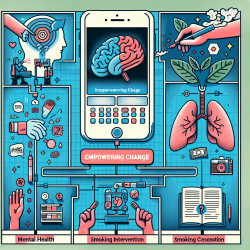Introduction
In the ever-evolving landscape of genomics, the issue of genetic discrimination (GD) has emerged as a significant concern. The research article titled "Genetic Discrimination: Introducing the Asian Perspective to the Debate" offers valuable insights into how seven Asian jurisdictions are tackling this challenge. As practitioners in the field of speech-language pathology, it is crucial to understand the implications of GD and how it can affect our work, especially when providing online therapy services to schools.
Understanding Genetic Discrimination
Genetic discrimination refers to the unfair treatment of individuals based on their genetic information. This can occur in various contexts, including employment, insurance, and healthcare. The rapid advancements in genomic technologies have made genetic testing more accessible, raising ethical, legal, and social issues. The Asian perspective on GD, as highlighted in the research, provides a unique understanding of the challenges and potential solutions in this region.
Key Findings from the Research
- Policy discussions on GD in Asia are primarily focused on employment, insurance, disability, marriage, and family planning.
- South Korea is the only jurisdiction with specific legislation to prevent GD, while others rely on broader ethical guidelines and privacy laws.
- There is a need for a coordinated regulatory and governance mechanism to address GD effectively across Asian jurisdictions.
Implications for Practitioners
As speech-language pathologists, understanding the implications of GD is essential for providing equitable and effective services. Here are some ways practitioners can improve their skills and outcomes:
- Stay Informed: Keep abreast of the latest research and policy developments related to GD. This knowledge will help you advocate for your clients and ensure they receive fair treatment.
- Promote Awareness: Educate school staff and parents about GD and its potential impact on students. Raising awareness can help prevent discrimination and promote inclusivity.
- Advocate for Policy Change: Engage in discussions with policymakers and stakeholders to advocate for stronger protections against GD in schools and other settings.
Encouraging Further Research
The research highlights the need for further investigation into GD in Asia. As practitioners, you can contribute to this effort by conducting studies or collaborating with researchers to explore the impact of GD on educational outcomes and therapy effectiveness.
Conclusion
The issue of genetic discrimination is complex and multifaceted, requiring a concerted effort from practitioners, researchers, and policymakers. By understanding the Asian perspective on GD, speech-language pathologists can better support their clients and contribute to creating more inclusive educational environments.
To read the original research paper, please follow this link: Genetic discrimination: introducing the Asian perspective to the debate.










